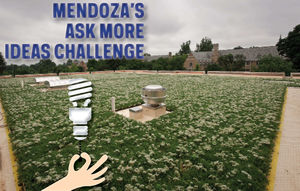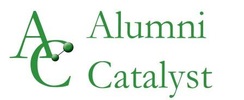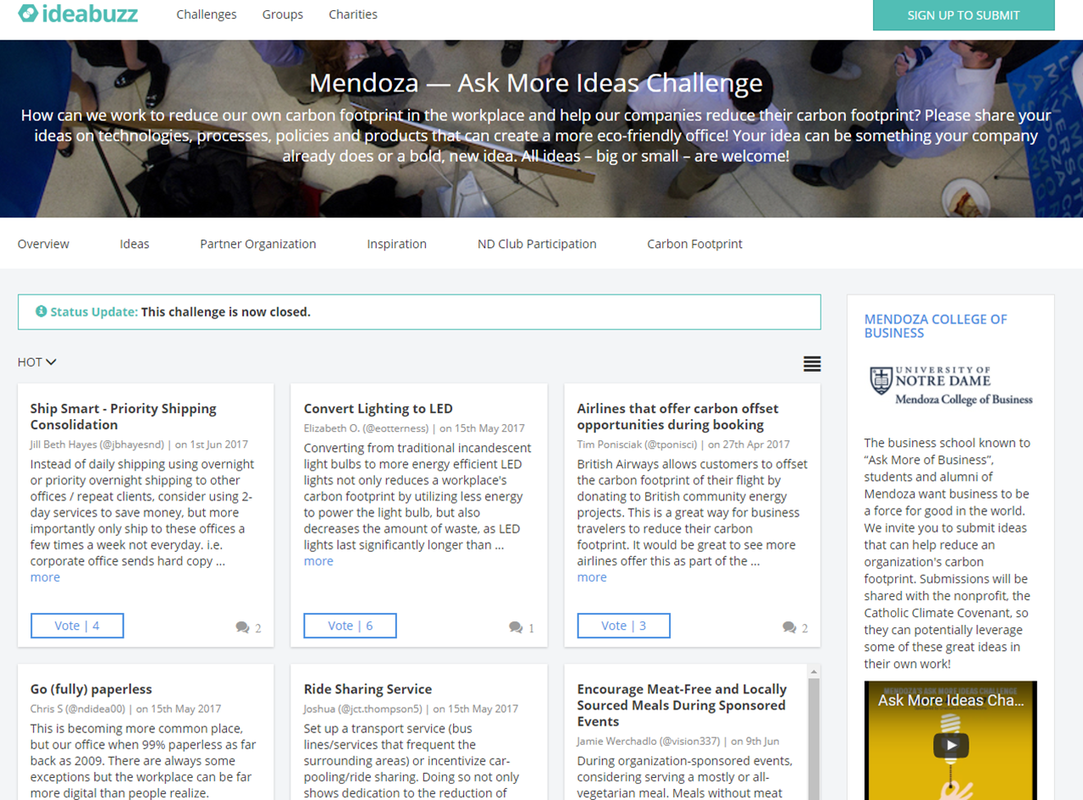Much has been made over the past 5 - 10 years about the power of crowdfunding in higher education. Crowdfunding provides the urgency necessary for higher ed fundraising, it cedes the responsibility of fundraising to concerned constituents - making the ask more personal and heartfelt, and it can provide a unique, short-term platform for restricted gift fundraising at a lower dollar threshhold. All of these things have allowed days of giving and student run crowdfunding campaigns to become immensely popular.
Amongst all the advances made due to new technologies available, not much has been said about how some of these same technologies could impact the world of alumni relations. If Uber can revolutionize the cab industry and Air BNB can transform the hotel industry, what can change the world of alumni relations? What product or platform can provide a new way for alumni to interact, to contribute and to share through their relationship with their alma mater?
Amongst all the advances made due to new technologies available, not much has been said about how some of these same technologies could impact the world of alumni relations. If Uber can revolutionize the cab industry and Air BNB can transform the hotel industry, what can change the world of alumni relations? What product or platform can provide a new way for alumni to interact, to contribute and to share through their relationship with their alma mater?
Having an impact through your alma mater
In 2016, we began looking for new ways to reach our alumni. We provided a good range of opportunities already: regional alumni receptions, on campus tailgates, social media feeds, e-communications, and local service opportunities in select cities. However, we wanted to do something more.
With the onslaught of new tech out there, there are a number of different ways individuals can share their expertise in ways never before possible. This provided a unique opportunity for us. We knew one of the strengths of our alumni base was our base's willingness to help others. The College's mission is "Ask More of Business, Ask More of Yourself" and we have some great programs for students to participate in while in school. We had also launched a local service opportunity for alumni in DC, Chicago and South Bend that allowed teams of alumni to serve as pro bono consultants to local nonprofits. This program was running well, but we didn't have a way to scale it nationally. We knew our alumni enjoyed using their business skills to benefit others through a connection set up by Mendoza, but was there a technology available that would allow us to take this type of program online? Enter crowdsourcing.
Crowdsourcing ideas... as a force for good.
Crowdsourcing has been around for a little while now. There are crowdsourcing sites like Kickstarter and Indiegogo that help individuals crowdsource funds. This type of crowdsourcing migrated into higher ed with companies like Scalefunder and the proliferation of days of giving. But there are other types of crowdsourcing tactics as well.
IDEO, a famous design consulting firm, has been running idea sharing challenges on its social impact site, OpenIdeo, for a few years now. The idea is that to solve some of the world's biggest challenges, the best way to do this is to utilize the wisdom of crowds. While you could get 5-10 experts into one room to discuss how to get more clean water to India, the best way to find the most effective solutions is actually to get as many opinions as possible, from people with expertise in a variety of different areas, and then to refine those ideas with the power of that same group of people.
OpenIdeo, along with other campaigns, provided us with the inspiration necessary for our new alumni relations campaign. We wanted to provide an online platform to allow our alumni to share their ideas for solving a specific societal challenge. We wanted to pose a question to our alumni that they would be uniquely qualified to answer, and we wanted to allow our alumni to vote and comment on ideas suggested by their counterparts.
What do our alumni think?
While we had what we thought was going to be a great way to engage our alumni. We wanted to be sure of it. We surveyed our alumni and asked them what they thought of a number of different service opportunities and types of service organizations to help. The idea sharing suggestion received high marks, so we were more reasonably assured that this could work.
We then set about determining a topic. We wanted something that was targeted toward experienced business people, but also something that would be a broad enough topic that an alum could contribute regardless of whether their background was in marketing, operations, accounting, finance or anything else.
Ultimately, we suggested a topic centered around the environment and how businesspeople can help to reduce the carbon footprint of their workplaces. We set the challenge to be one month long, from May 15 to June 15, and called it the Mendoza Ask More Ideas Challenge.
We then set about determining a topic. We wanted something that was targeted toward experienced business people, but also something that would be a broad enough topic that an alum could contribute regardless of whether their background was in marketing, operations, accounting, finance or anything else.
Ultimately, we suggested a topic centered around the environment and how businesspeople can help to reduce the carbon footprint of their workplaces. We set the challenge to be one month long, from May 15 to June 15, and called it the Mendoza Ask More Ideas Challenge.
The Ask More Ideas Challenge

To do this right, we couldn't just create the site, we had to get people to visit. To build a more robust, integrated campaign, we did a couple of things:
- Internal partnerships: We worked with many different offices on campus to help spread our word: The Alumni Association, Development, the Office of Sustainability and our MBA student New Impact chapter. All of these groups helped spread the word about our challenge to their constituents as well.
- Outside partnership: In order for the suggestions made as part of the campaign to truly have a significant impact, we wanted the suggestions to benefit a group beyond our alumni base. We partnered with a nonprofit, the Catholic Climate Covenant, who also promoted the campaign to their constituents and helped us review ideas.
- Social media: We created a gif, a unique graphic overlay for social media and a video to create a more robust site and to encourage our followers to post about the Challenge
- Local touch: While we wanted this challenge to be conducted online, we also saw the value of doing in-person events as well, as this would provide a new form of engagement event, something very different than a typical networking reception. We hosted a dinner for our alumni at a local farm-to-table restaurant with table hosts at each table to facilitate conversations around the carbon footprint topic.
The Results

The Challenge was quite the task. Some aspects of our plan exceeded expectations, while others fell flat. In the end, we finished with 64 ideas submitted. Our goal had been 100, but ultimately we were satisfied with our final tally. So what worked?
Positives:
Our goal is to have a different challenge question posed each year, leveraging the talents of our alumni to help a different group of individuals or part of society in need.
What do you think of the idea? Could your school launch something similar?
Positives:
- Local dinner: The dinner we hosted sold out and we received very high marks from our attendees. Many alums commented that it was nice to interact with fellow alumni in a way in which they feel like they are contributing, not just networking.
- Internal partnership: It was great to have other departments on campus willing to share our message and help us reach a different constituency base.
- Social media: We didn't get quite as much activity as we had hoped to see.
- The question itself: This is perhaps the most difficult part of running an idea challenge. The question has to be perfect in that it draws people in, but will also elicit a wide variety of answers. In retrospect, our question may have not been audacious or out-of-the-box enough to really inspire 100 ideas.
- Work with a small committee of alumni as an advisory board as we are building the site
- Run the campaign from the first of the month til the last day
- Host in-person events in South Bend and also in Chicago, our largest alumni market
Our goal is to have a different challenge question posed each year, leveraging the talents of our alumni to help a different group of individuals or part of society in need.
What do you think of the idea? Could your school launch something similar?



 RSS Feed
RSS Feed
